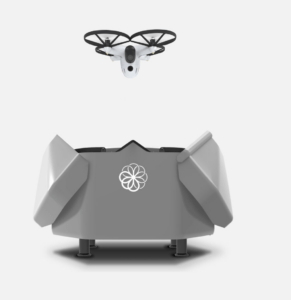
In a recent study by smart home security firm Vivint, homeowners were asked for their perceptions and opinions about AI-enhanced security features. These features include remote monitoring, facial recognition, fingerprint or retina scans, routine memorization, and more.
Remote monitoring, personal detection, and highly customizable automation are just a few of the key features that we’ve been able to perfect through recent AI advancements.It is encouraging to see consumers reporting an increased preference for AI in the smart home space, as our study shows that 3 in 8 homeowners who do not currently utilize AI-powered solutions are now considering integrating AI into their security systems. Additionally, 67% of respondents say they would be willing to pay more for AI-enhanced security.
Read more:
- Outdoor Home Security System from Sunflower Labs Employs Drones
- Stanley Black & Decker in Partnership with Sunflower to Deliver Drone Home Security Solutions
- Industry Veteran Colin Guinn on the Commercial Drone Industry, New Regs, and Why Sunflower Labs Will Be the DJI of Their Space
- Sunflower Labs Security: The Beehive Drone-in-a-Box Solution
Miriam McNabb is the Editor-in-Chief of DRONELIFE and CEO of JobForDrones, a professional drone services marketplace, and a fascinated observer of the emerging drone industry and the regulatory environment for drones. Miriam has penned over 3,000 articles focused on the commercial drone space and is an international speaker and recognized figure in the industry. Miriam has a degree from the University of Chicago and over 20 years of experience in high tech sales and marketing for new technologies.
For drone industry consulting or writing, Email Miriam.
TWITTER:@spaldingbarker
Subscribe to DroneLife here.